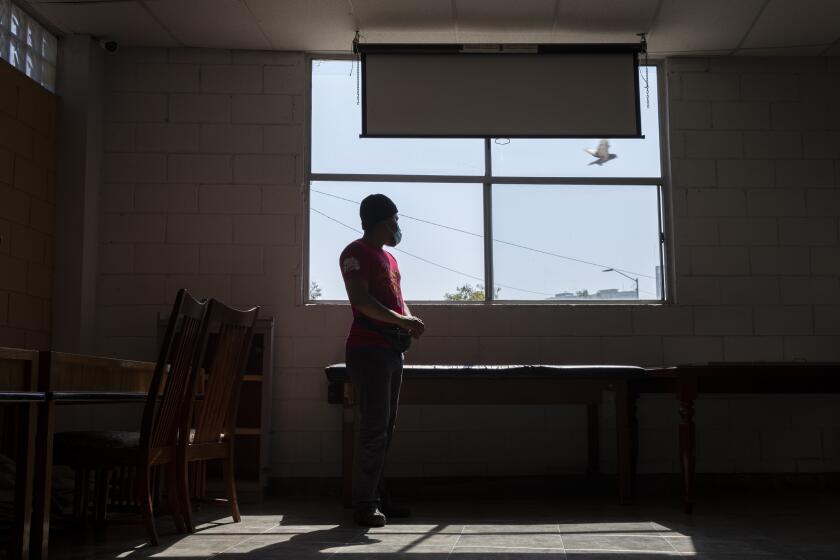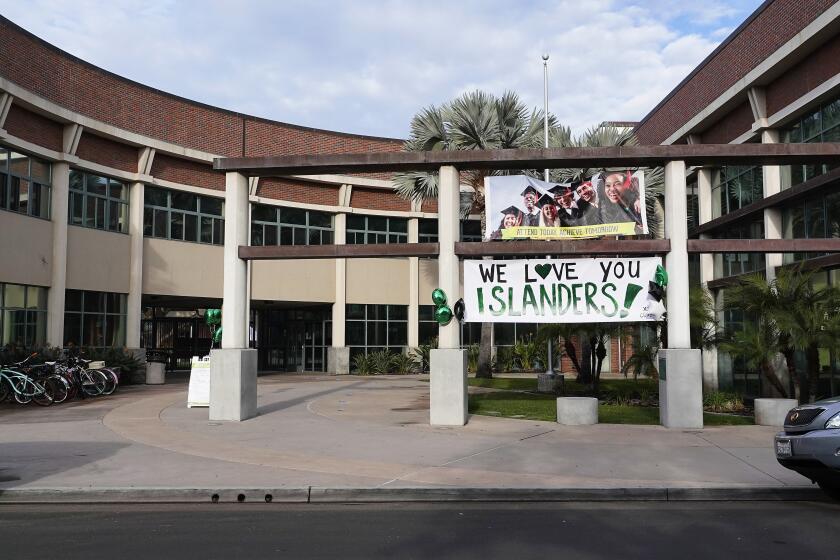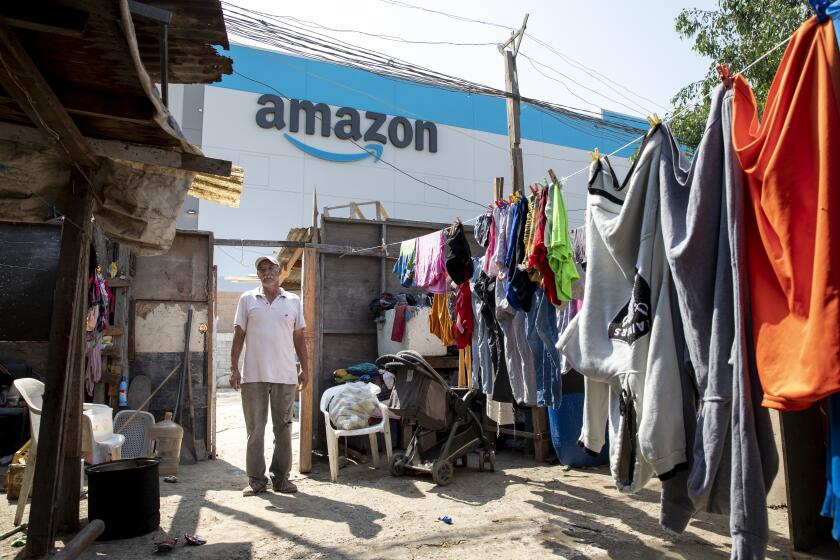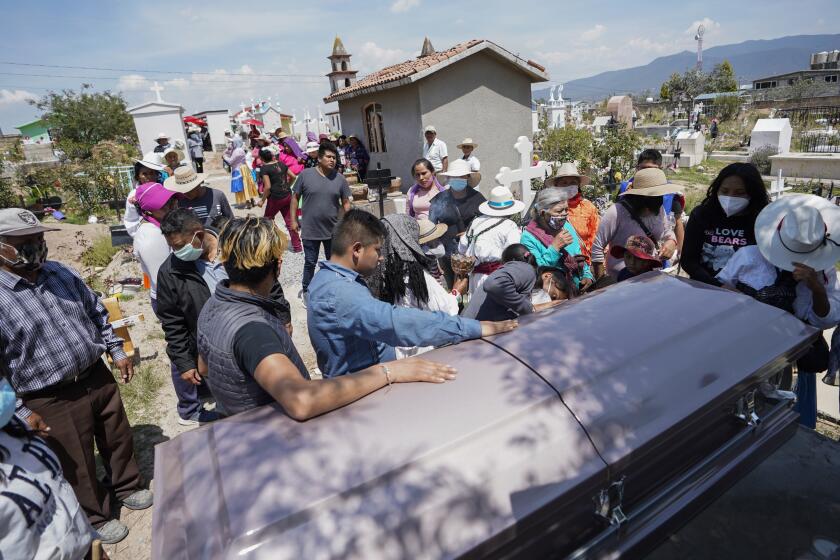Guatemalan child allowed into U.S. for urgent cancer treatment, a rare grant of parole
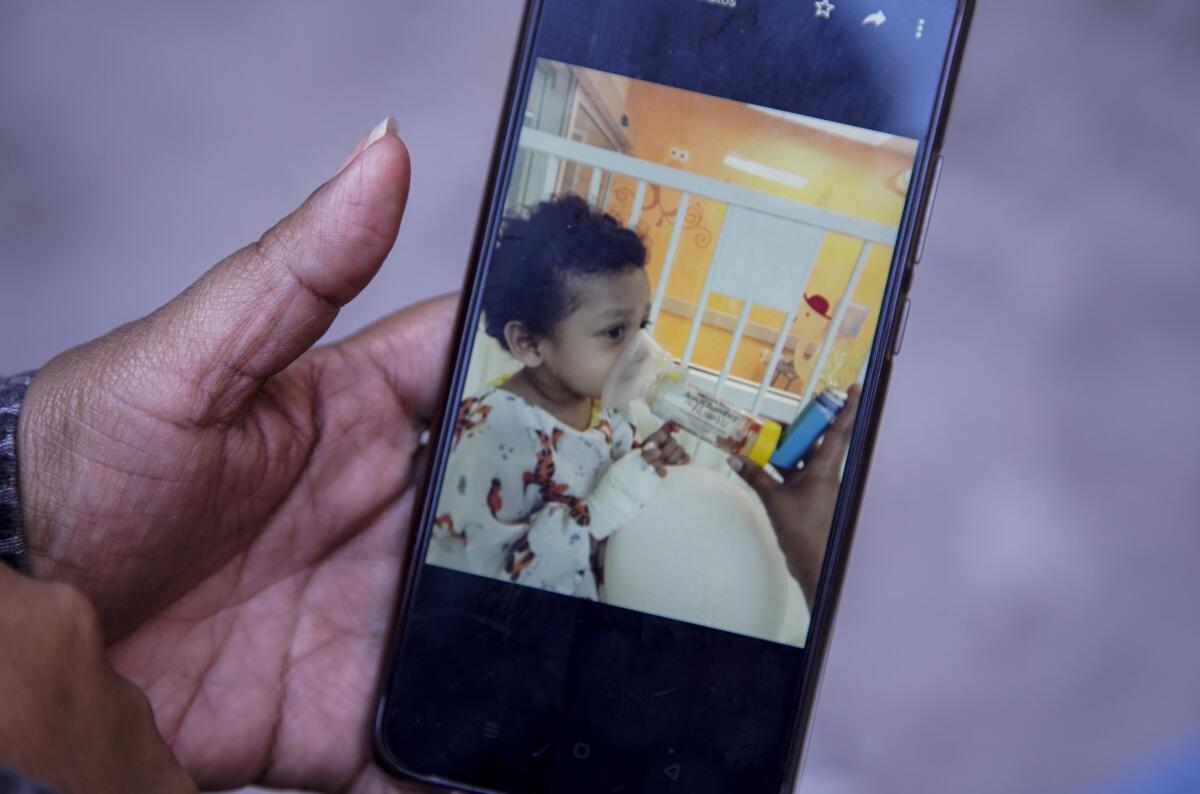
When Carlitos, a 2-year-old boy from Guatemala, was finally allowed to enter the United States from Tijuana, it was in an ambulance.
Carlitos’ story — kidnapping, expulsion, lack of access to medical care, a serious illness that could kill him quickly without proper treatment — is common among asylum seekers stranded south of the border by U.S. policies, according to his attorney, Hollie Webb. What is rare, though, is the outcome.
Attorneys and doctors lobbied U.S. Customs and Border Protection officials to allow Carlitos and his mother Ana to cross to San Diego under a special permission known as humanitarian parole so that the boy could get life-saving cancer treatment. After not responding for more than a week, and an inquiry from the the San Diego Union-Tribune, CBP granted the request.
On Thursday evening, Carlitos and Ana crossed into the United States. They switched to a second ambulance, which took them to a helicopter that carried them to a hospital north of San Diego where the youngster will be treated.
The pair had been stuck in Tijuana after being expelled from the United States under a border policy — started under former President Trump and continued by President Biden — known as Title 42. Ana asked that the two not be fully identified due to safety concerns.
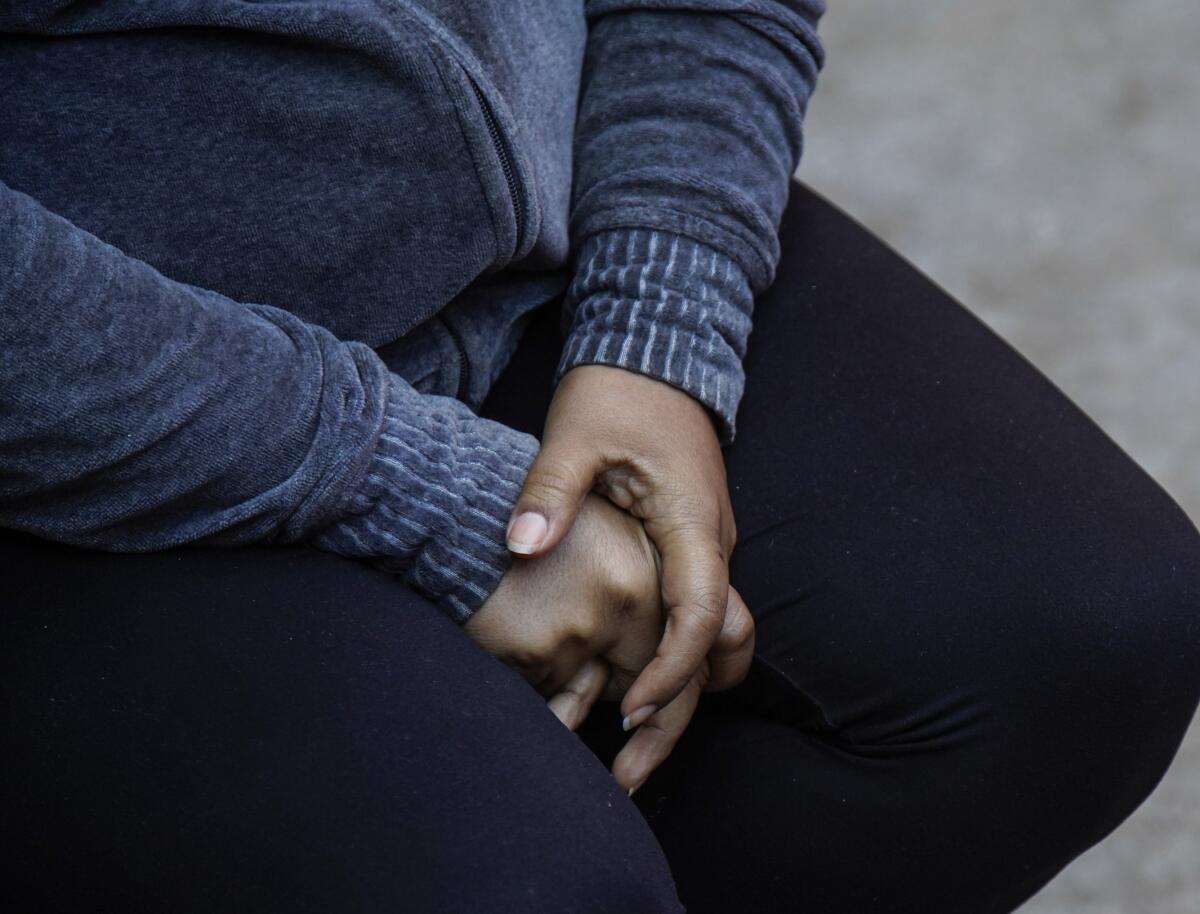
Most parole requests, according to Webb, who works for Al Otro Lado, a legal services nonprofit that supports migrants in Tijuana, are either left pending indefinitely or denied with little explanation.
Parole is the only way for asylum seekers to enter the United States through ports of entry since the Biden administration has not resumed asylum processing at the border following Trump’s shutdown of the system.
A report published Thursday by Human Rights First surveyed five legal service providers at the border and found just over 15% of parole requests had been granted since August. In some of those cases, CBP only granted parole for the person most at risk of harm, separating them from family members who were left waiting in Mexico.
“It keeps coming back to this over and over. There’s no reason for this,” Webb said. “The level of cruelty, of apathy, from the administration, it’s really terrible.”
The Human Rights First report lists numerous examples of applications that CBP either denied or has not responded to, including a Honduran lesbian woman and her partner who had been raped by Mexican police; another Honduran woman who was raped by Mexican police and forced to become a sex worker; a family whose 7-year-old child has cerebral palsy; and a Nicaraguan woman who fell from the border wall, breaking her leg in three places, before being expelled while her husband and son were released into the country to request asylum.
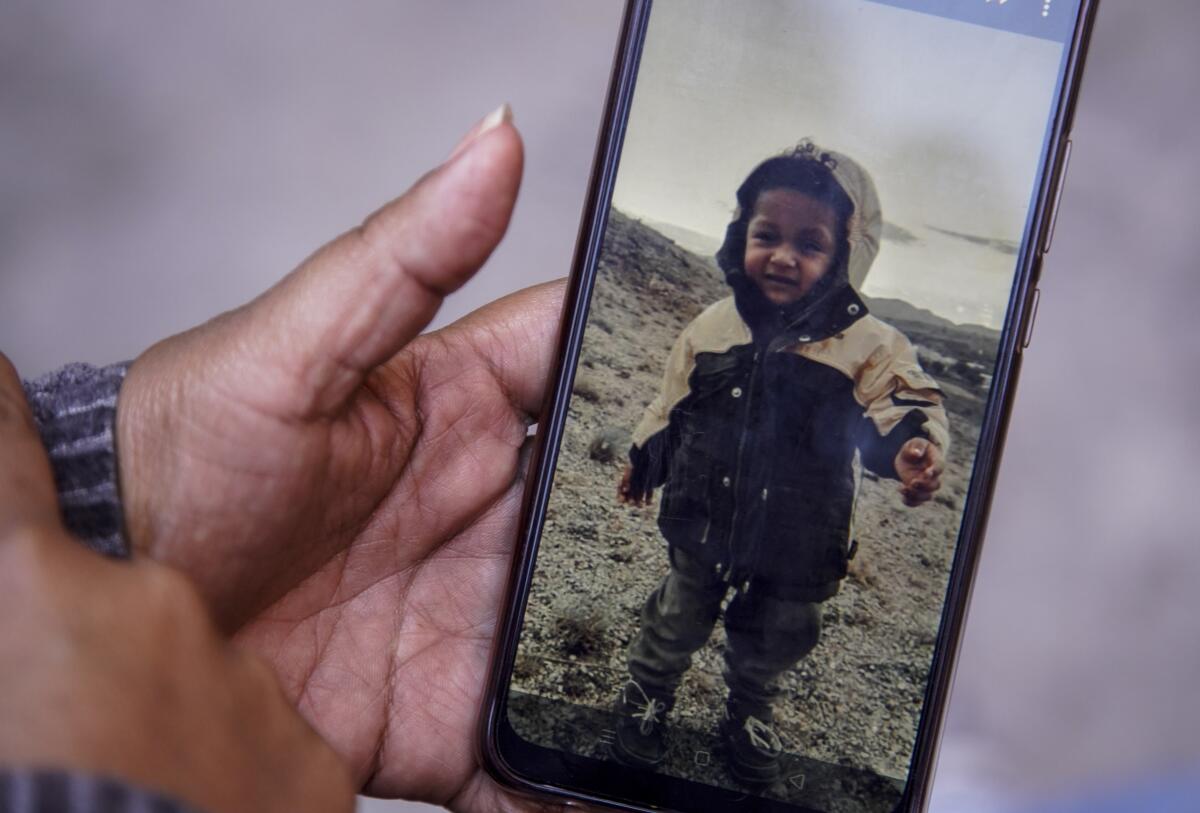
In Carlitos’ case, his mother learned of his life-threatening illness after the two were kidnapped by a cartel near the Texas border. They had fled Guatemala due to death threats in June.
The cartel tied Ana’s hands behind her back and filled her mouth with rocks while they beat and tortured her child, Ana said.
Once they were able to get away, the pair crossed onto U.S. soil and requested help, but they were quickly expelled without medical attention, Ana said.
The Human Rights First report noted that researchers have documented at least 7,647 instances of violent attacks on migrants expelled under Title 42 since Biden took office. Among those, some have been assaulted, kidnapped, raped and even murdered.
Ana begged for money to try to get help for her son, and a woman offered them a ride to Tijuana, dropping them off at a hospital.
Carlitos was later diagnosed with a type of leukemia, in addition to the injuries he’d suffered from the cartel.
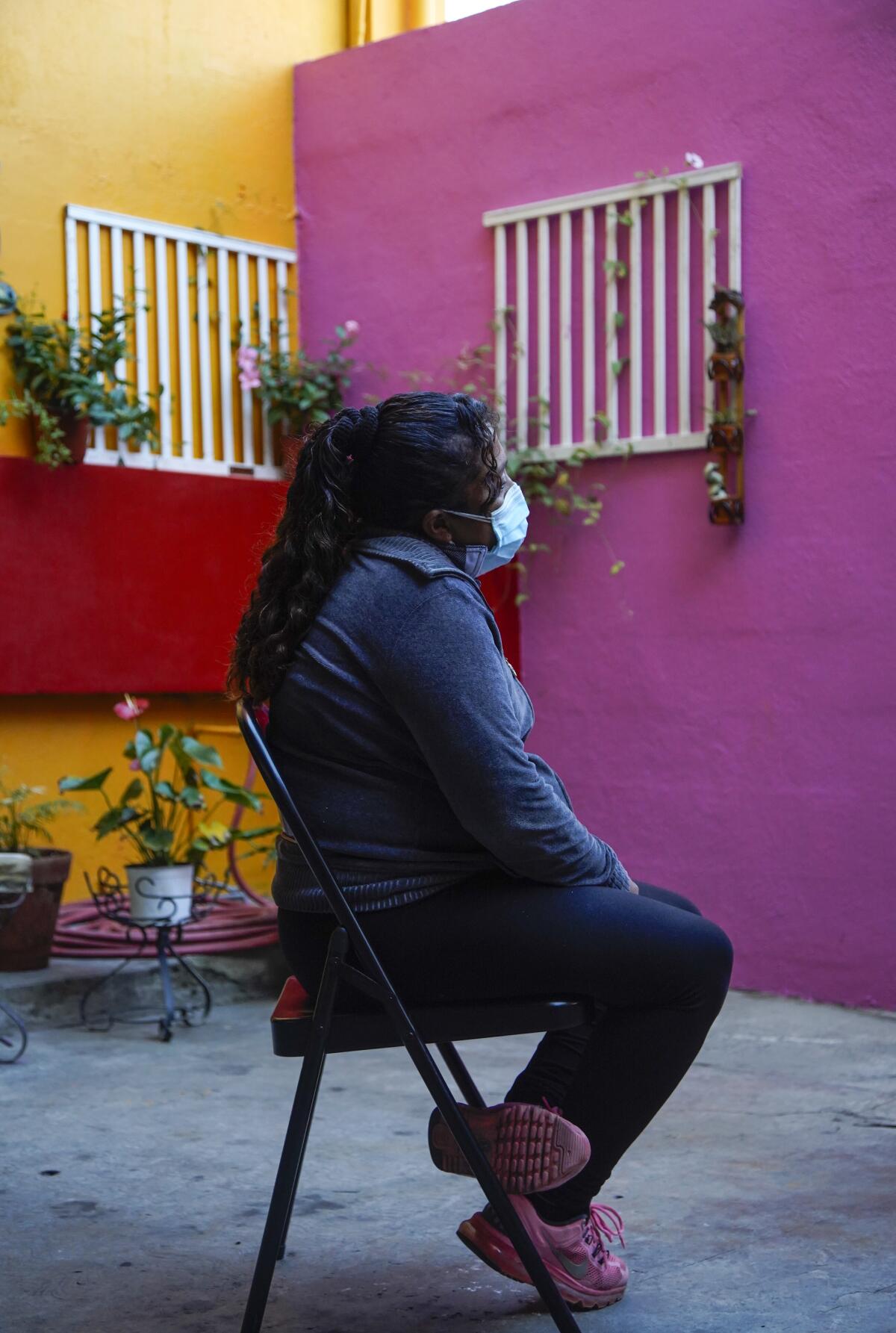
The hospital in Tijuana did not have the resources or medications to help him. As his condition worsened, a doctor treating him told CBP that if the agency did not let him in, he would likely die soon.
CBP did not respond to the parole request for more than a week, nor to attorneys’ repeated attempts to check on the case.
After the Union-Tribune sent an email inquiring about the case on Tuesday evening, CBP told the attorneys Wednesday that the boy and his mother had been approved.
CBP said later it could not comment on individual cases due to privacy concerns. The agency did not respond to followup questions about parole processing more generally.
“Carlitos is an integral part of my life,” Ana said in Spanish a few hours before her case was approved. “This is very difficult. It wasn’t something I anticipated.”
She has had to hide her emotional struggles since her son’s diagnosis. He has been in and out of hospitals for months.
“I have to be stronger than I feel to give energy to my child,” Ana said.
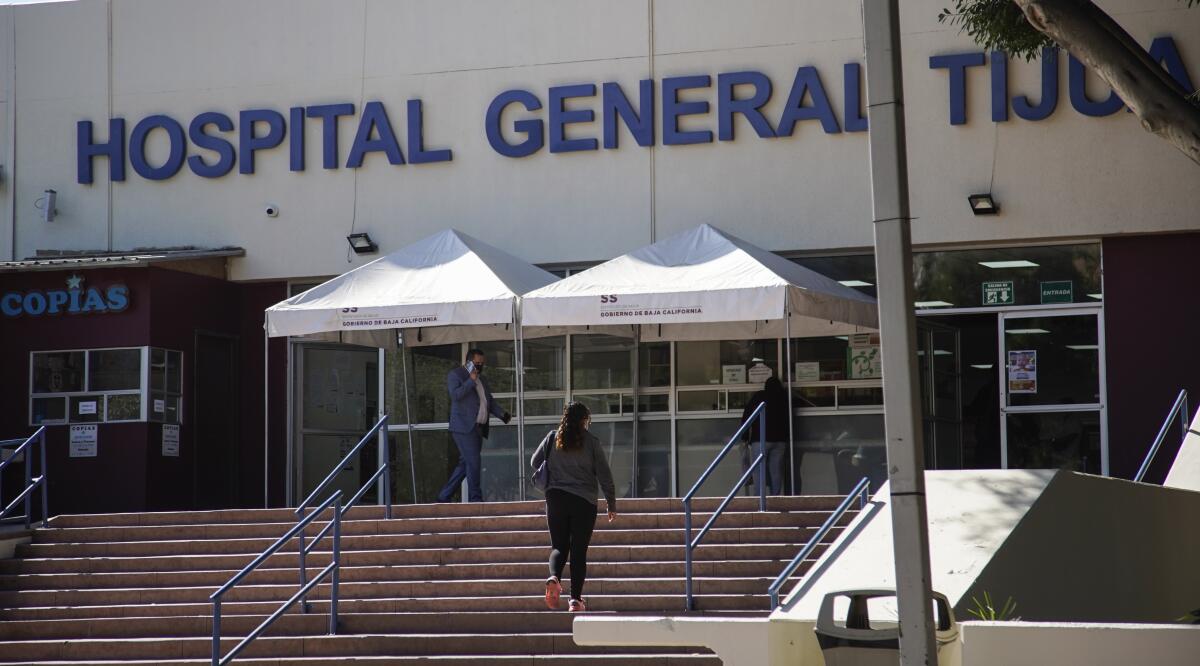
Ana hadn’t been able to see him in person since he’d been hospitalized again on Sunday. She was allowed a five-minute video call with him once a day. If she missed the appointment time, she would have to wait until the next day.
She has family in New York, which she plans to eventually join, but first Carlitos will need to receive care closer to the border. Ana will have to find a place to stay during his treatment and hope that their parole hasn’t come too late.
More to Read
Sign up for Essential California
The most important California stories and recommendations in your inbox every morning.
You may occasionally receive promotional content from the Los Angeles Times.




